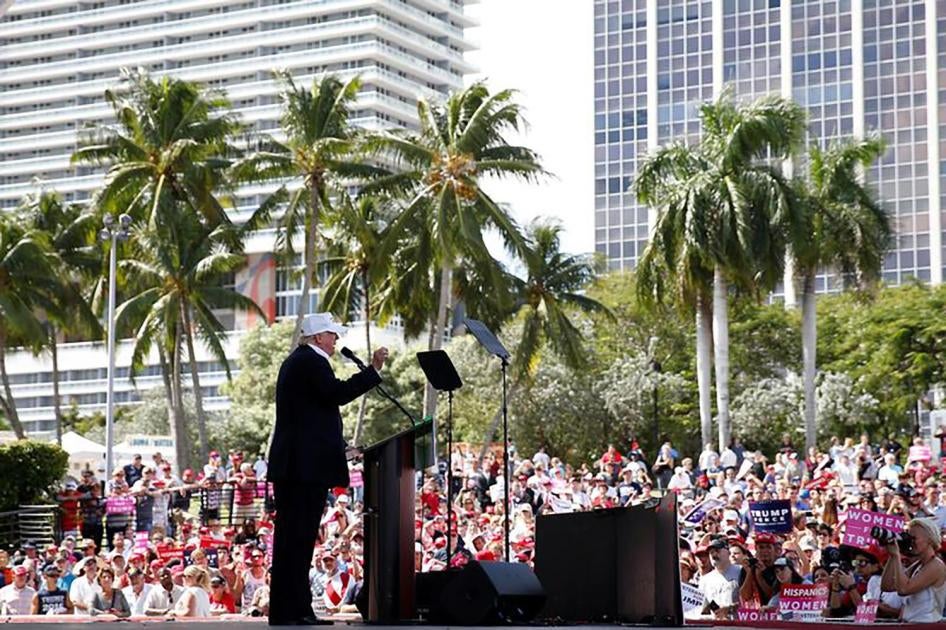(Washington, DC) – Reversing the Obama administration’s changes in United States policy toward Cuba will not improve respect for human rights on the island, Human Rights Watch said today.
President Donald J. Trump may announce a new policy toward Cuba during a visit to Miami on June 16, 2017, multiple news outlets have reported. Critics of the current policy point to ongoing repression in Cuba as evidence that the approach was misguided.
“The previous administration was right to reject a policy that hurt ordinary Cubans and did nothing to advance human rights,” said Daniel Wilkinson, managing director for the Americas at Human Rights Watch. “The fact that Obama’s approach hasn’t led to political reform in Cuba after just a few years isn’t reason to return to a policy that proved a costly failure over many decades.”
In December 2014, then-President Barack Obama announced that the US would normalize diplomatic relations with Cuba and ease restrictions on travel and commerce, and called on Congress to consider lifting Washington’s decades-old embargo on the island. In exchange, the government of President Raúl Castro granted conditional release to 53 political prisoners.
The two governments restored diplomatic relations in July 2015. In March 2016, Obama visited Cuba, where he met with Castro, as well as with Cuban human rights advocates and independent journalists. Obama gave a nationally televised address in which he urged the Cuban government to lift restrictions on political freedoms.
Cuba remains a highly repressive country. While there were improvements in several areas in the years prior to 2014 – including the relaxation of travel restrictions and the reduction in the number of political prisoners – the government’s other repressive practices remain largely unchanged. It represses dissent and discourages public criticism.
The Cuban government relies less now than in years past on long-term prison sentences to punish its critics. But short-term arbitrary arrests of human rights defenders, independent journalists, and others increased in recent years. Other repressive tactics include beatings, public shaming, and the termination of employment.
But restoring restrictions on travel and commerce are unlikely to lead to improvements, Human Rights Watch said. For more than half a century, the embargo has imposed indiscriminate hardship on the Cuban population as a whole. It has provided the Cuban government with an excuse for its problems, a pretext for its abuses, and a way to garner sympathy abroad with governments that might otherwise have been willing to condemn the country’s repressive practices.
And insisting on human rights progress as a precondition to a new policy is unlikely to bring about change, Human Rights Watch said. Given the Castro government’s longstanding determination to control virtually all political activity on the island, it is very unlikely that such a quid-pro-quo approach would have yielded any more results than it has in the past. Instead it would merely have prevented the rapprochement and left intact the geopolitical dynamic that has inoculated the Cuban government from international pressure for decades.
“International pressure on the Cuban government is needed to help create conditions for change,” Wilkinson said. “But to be effective, this should be multilateral pressure brought alongside other governments in the region.”









